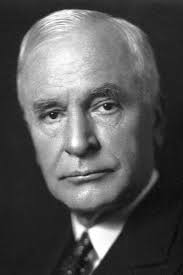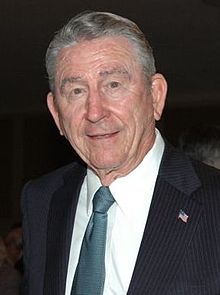Lawmaker seeks to rename building honoring Nobel winner

NASHVILLE, Tenn. — It is hard to drive anywhere in Nashville without seeing an historical marker honoring a moment in Tennessee history. Buildings, too, in the city are named after famous Tennesseans.
Unfortunately, it often comes to our attention only when a controversy is stirred up by two opposing forces. Such is the case of the Cordell Hull building downtown. Few probably know about all the contributions this statesman made to Tennessee and the United States.
A Tennessee lawmaker wants to change the name of the state’s legislative office building from that of a Democratic Nobel laureate to a Republican one-term governor.
The Cordell Hull Building honors a Tennessean who was awarded the Nobel Peace Prize in 1945 for his work establishing the United Nations. Hull served in the U.S. House and Senate and was the longest serving U.S. Secretary of State, serving under Franklin Roosevelt for 11 years.
His greatest contribution to the postwar world came within the realm of international trade. As a firm believer in Woodrow Wilson’s vision of liberal internationalism, Hull believed that free trade promoted international peace and prosperity. He considered high tariff barriers a pressing issue that had contributed to the economic decline leading to the Great Depression and the rise of fascism.
Republican State Rep. Ron Gant told WKRN-TV his bill would rename the building after former Gov. Winfield Dunn. Gant told The Tennessean that Dunn’s accomplishments include creating a state kindergarten program and changing the state’s welcome signs to “the great state of Tennessee.”
In November 1970, Winfield Dunn defeated Democratic Party nominee John J. Hooker and became the first Republican to be elected governor of Tennessee in a half-century. It is hard to imagine that Tennessee was once a “Blue” state.
Before Dunn’s election to the governorship, Dunn had never held public office and was a virtual unknown, except to a handful of Republican activists. His election was a visible sign of the growing strength and popularity of the Tennessee Republican Party in the 1960s.
This is not the first time Tennessee Republicans and Democrats have sparred over how to handle a moment in Tennessee history that conflicts with each parties beliefs. An example is the ongoing battle with where the bronze bust of Nathen Bedford Forrest who is famous for creating the Klu Klux Klan.
Like any change with the bust of Forrest or the name of a building, the Tennessee Historical Commission approval need to approve the changes.
